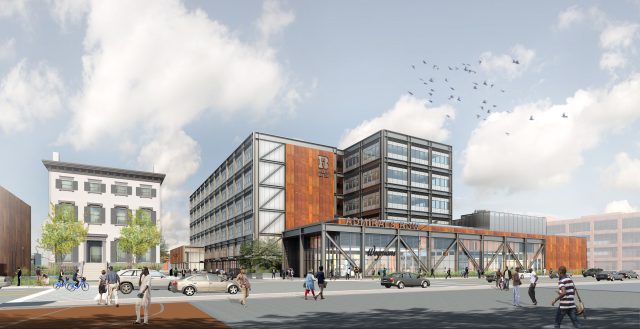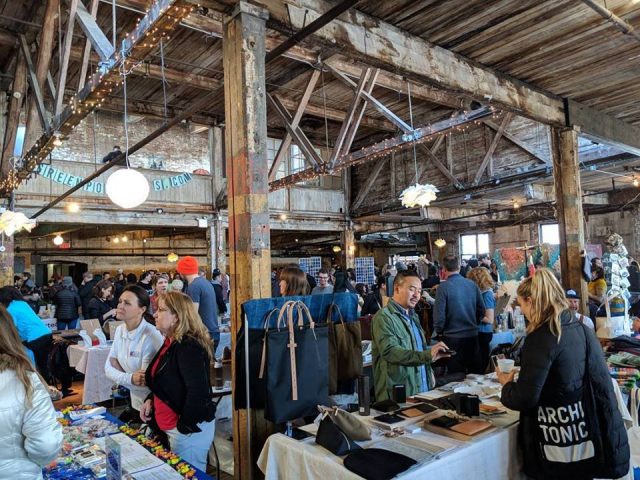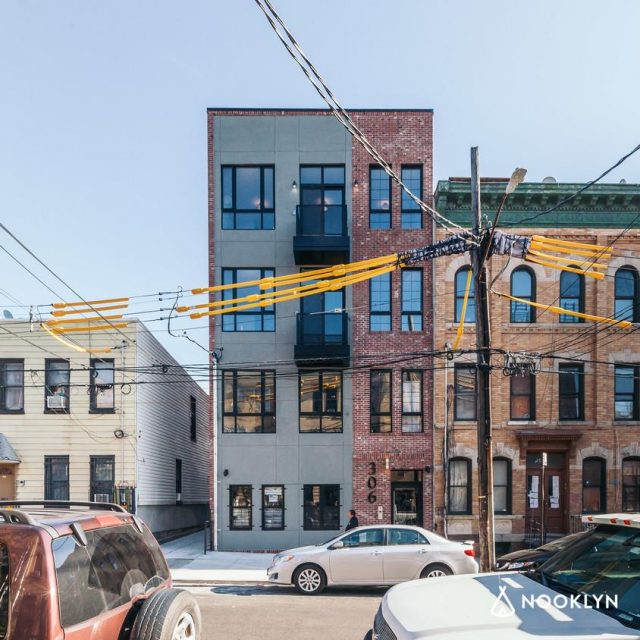 Author Laura Lee may have well written the Brokelyn manifesto, the recession-victims’ King James Bible and the brokester I Ching all wrapped into one. Her new book, Broke is Beautiful, is a vast, thoughtful and intensely researched tome on the value of living the cash-strapped life. We talked with Lee, a former pizza delivery-girl, fast-food worker and author of several books, about things like the distraction of plutolatry (the worship of wealth), our throw-away culture and how brokeness has always been cool.
Author Laura Lee may have well written the Brokelyn manifesto, the recession-victims’ King James Bible and the brokester I Ching all wrapped into one. Her new book, Broke is Beautiful, is a vast, thoughtful and intensely researched tome on the value of living the cash-strapped life. We talked with Lee, a former pizza delivery-girl, fast-food worker and author of several books, about things like the distraction of plutolatry (the worship of wealth), our throw-away culture and how brokeness has always been cool.
On a deeply philosophical level, Lee is asking the questions: Do you really need to spend money on all this crap? Or have you bought into the shaky zeitgeist that spending money is always a good thing? “Being broke is not abnormal,” Lee writes. “Being rich, on the other hand, is freakish.” We had a few questions of our own.
So what’s the difference between being “broke” and being poor?
Being poor is more of a social classification. I think that when a person thinks of themselves as broke, they think that they’re supposed to be at a different level and that they’re in this state of things just not being right.

Has the internet changed the perception of what it means to be broke?
I think it’s allowed you to have resources, and community. You can use something like Freecycle. It feels tremendous when you have your last quarter and you’re out of coffee and you post on there, “I’m outta coffee. Is anyone kicking their caffeine habit?” And someone shows up and says, “Yeah I’ve got all this gourmet coffee.” That is the best coffee you will ever have is the coffee you got when you only had a quarter. You appreciate it in a way that you don’t when you go to Starbucks every day.
Your book talks a lot about the connection between being broke and being green, and the negative effects of big-box stores like Walmart. Does that mean there’s a “wrong” way to be broke or go green?
People tend to make the assumption that going green is cheaper than not going green, and it can be, if it means not buying new things or using stuff you’ve already got. But it can also be just bottom-line cheaper to get something at a big box store, to get fast-food. There’s a right way to be green and save money, but you can also be green by buying lots of “green” stuff, which is kind of ironic.
What’s a ridiculous thing you see a lot of people spend money on that’s completely unnecessary?
My boyfriend is Russian and I’ve known a lot of Russian people, and every Russian person I’ve known has been kind of disgusted by paper towels. They can’t understand why on earth you would buy paper towels when you have a rag to clean stuff up with, then wash it and use it until it falls apart. It’s not a green concern for them. It’s more like, “Why are you basically throwing your money in the trash?”
Now that brokenness is cool, how do you feel about “broke chic” being co-opted by designers and wannabes?
I came across a t-shirt a couple of months ago — it’s one of those real trendy brands where they have the skinny waist models wearing a “broke is the new black” t-shirt. It seemed really ironic to me to be buying from some upscale label with their “broke is the new black” t-shirt that probably cost 50 bucks. I think artists have had the advantage of having that starving-artist mythos that, rather than being embarrassed, they could play up at times. I think that gives you a little bit more of a mental out. If some of that mindset could be transferred to people who were downsized, I think it would be positive.
Do you think people will stick with the redemptive qualities of living the broke lifestyle as the economy rebounds?
I’ve been seeing a lot of stories lately that are like, “good news! Consumer spending is up and people are willing to go into debt again, and so this is great news for the economy.” I think that on a really big level, on a social level, I would like to see us thinking more about whether this is good news or not. I hope that people do change their habits and mindsets and start questioning whether it’s always positive that we’re buying more stuff, if that’s necessarily good. The Great Depression certainly impacted that generation and how they think about things, so it could stick with us.
Broke is Beautiful from Running Press is available for $12.95 from the author’s website, Amazon and other retailers.
2 Comments
Leave a Reply




okay, this “gross misunderstanding of what freecycle is intended for and how it works” thing really irritates those of us who participate heavily in it–it is not about your sense of entitlement, but about reusing and recycling and saving landfill space. (and yeah I know this seems picky but seriously, there have been a TON of interviews and articles lately with people saying “oh yeah, totally ask for that solid wood new dining furniture on Freecycle! Someone will offer it to you!” and it drives us actual freecyclers crazy.)
For everyone with a legitimate request, there’s 5 morons spamming the list with “wanted: gourmet coffee.” Actual examples from the last few months of Brooklyn freecycle:
-a guy who wanted someone to drive him from NYC to Tampa and back
-an Aeron office chair (retail value: $500 and up)
-HD DVD player
-tandem bicycle
-flatscreen tv
-specific dvds and books (go to the library!)
-ipods, imacs, and ipads
And that’s just the start. Seriously y’all, FC is not your personal wish list. Please please please just keep that in mind.
I share your enthusiasm for the ethos of Freecycle.
I have used Freecycle to give away a computer and a host of other stuff, and I have used it to find charities that could accept large donations of material. It is a tremendous resource.
Even the fairly broke person probably has something he is not using to give away. Never underestimate the importance of giving to those who are often in the one-down position of having to ask for help. That alone is a great benefit of Freecycle.
But Freecycle is not only about giving things away. It is also for finding things that you need rather than having to buy them new, which reduces consumer impact and waste. It can also, and not insignificantly, be a boon to people who are in real financial need.
Let me share the background for the coffee situation. Payments from clients were overdue, and I couldn’t guarantee when they would arrive. I had a few coins to last me until then and I’d run out of coffee. I reused my grounds for two days until they were only producing slightly darker water.
I thought it was worth a shot, so I posted in the Freecycle “Wanted” category asking if anyone had recently kicked a coffee habit and had any that they were not going to use.
That is exactly why the “Wanted” category exists. So people can share what they need, and see if anyone has one that they were not using.
As an aside, I find there is often a sense that it is socially acceptable to take something if you have an ideological explanation (keeping it out of landfills) rather than a financial explanation (I have no money). The dumpster diving Freegan is “liberating waste” while the dumpster diver who couldn’t otherwise afford to eat is a vagrant or a hobo. (The stuff was heading to the landfill in either case.)
Different people have different ideas of what constitute luxury items and what are necessities. And without being in someone’s shoes, it is difficult to judge what those are and the context of the request.
Maybe we can agree that a big screen HD TV with Blu Ray disc is probably not a necessity, and not likely to be on someone’s trash heap.
But if someone has a teenager with a birthday coming up, and they don’t have enough money to buy a new MP3 player, there is nothing wrong with posting and asking for one. They may find someone was about to get rid of last year’s model. This is exactly what Freecycle is all about.
Fortunately for me, when I posted asking about coffee, someone happened to have gotten a coffee sampler as an unwanted gift.
That it was gourmet coffee was a tremendous treat and bonus because I usually drink whatever the store has on sale cheapest.
I had such a deep appreciation for that coffee because someone had given me a gift when I was on my last quarter, which was my point. It would have been the best coffee I ever drank whether it was gourmet, Folgers or the stuff they make at the gas station.
For cash-strapped people who may feel rather constantly judged, the benefit of being able to ask for what they need (or want) without worrying about people’s judgments is greatly appreciated. Someone will either have the item to offer, or they won’t. No problem.
In my view, it is worth the trade off to allow a few people to try to “game the system” by asking for unrealistic big ticket items to keep the system open and free. That’s why I think it is unhelpful to refer to people who post requests as “morons” or “entitled.”
If they’re asking for things people don’t tend to cast off, they won’t be successful anyway, and they’ll soon move on.